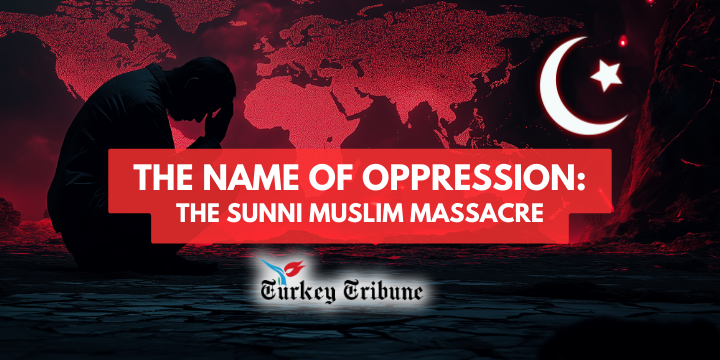The aftermath of Syria’s fight for freedom has revealed a harrowing reality: hundreds of thousands of Sunni Muslims have perished under the brutal oppression of the Assad regime, supported by Iran and Russia. In the Syrian civil war, Bashar al-Assad and his allies bear responsibility for the deaths of over one million people and the displacement of 12 million more. Those unable to flee from the atrocities were subjected to unimaginable torture and inhumane conditions, leading to death in hospitals or abandonment to decay under the oppressive Alawite-led Syrian regime.

A Pattern of Sunni Muslim Targeting
The plight of Sunni Muslims is not confined to Syria. Across the globe, Sunni Muslims have been the primary victims of violence, persecution, and genocide:
- Palestine:
Over a span of just 14 months, more than 50,000 Sunni Muslims have been killed by Israeli forces, with 40% of the victims being children. The ongoing conflict in Palestine disproportionately targets Sunni Muslims, leaving them to bear the brunt of systemic violence. - Myanmar:
The Rohingya Muslims, predominantly Sunni, have faced ethnic cleansing at the hands of the Myanmar military. Thousands have been slaughtered, and countless others have been displaced, stripped of their homes and dignity. - Global Terrorism:
Sunni Muslims have also been the primary targets of terrorist organizations. Groups like ISIS (which, despite appearing Muslim, operate under the influence of foreign intelligence networks) and Kurdish separatist militias such as the PKK/YPG have targeted Sunni communities. These organizations’ actions have perpetuated a cycle of violence and further marginalized Sunni Muslims. - Systematic Marginalization:
Whether in Yemen, Iraq, or Lebanon, Sunni Muslims continue to face systematic exclusion and targeted violence, often orchestrated by regimes or groups aligned with Shiite or other sectarian agendas.
The Abolition of the Caliphate: A Missed Opportunity for Global Stability
The Role of the Arab Spring
The Arab Spring, which began as a series of movements aimed at greater freedom and democracy, marked a turning point for the Sunni Muslim world. Instead of achieving liberation, the aftermath led to prolonged conflicts that disproportionately affected Sunni communities. The resulting instability gave rise to oppressive regimes, civil wars, and external interventions, exacerbating the suffering of Sunni Muslims.
The Silence of the Global Community
Despite the scale of these atrocities, the international response has been alarmingly muted. While there is widespread acknowledgment of human rights violations, the targeting of Sunni Muslims is often overlooked or mischaracterized as a broader “Muslim genocide.” This generalization obscures the specific suffering of Sunni Muslims and denies the historical and political context behind their victimization.
The evidence is clear: Sunni Muslims have been systematically targeted, marginalized, and oppressed across the globe. From the horrors of Syria and Palestine to the ongoing ethnic cleansing in Myanmar, Sunni Muslims remain among the most vulnerable and persecuted communities in the world. Acknowledging this reality is the first step toward justice. Only through an honest reckoning with the specific nature of these atrocities can the international community begin to address the root causes and work toward ending the cycle of violence.
The Sunni Muslim community’s plight is not just a chapter in the broader narrative of global conflict; it is a distinct tragedy that demands recognition, accountability, and action.















